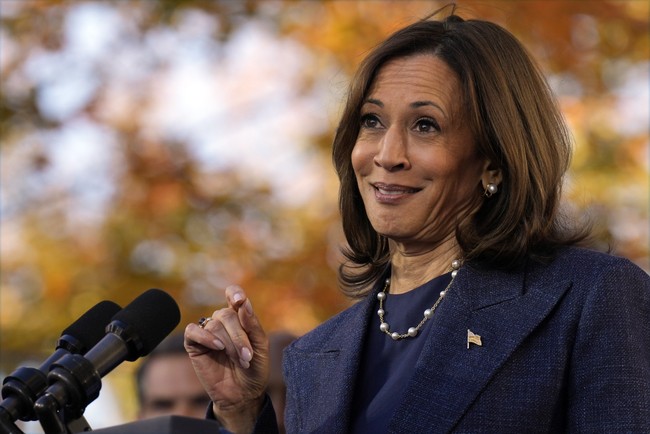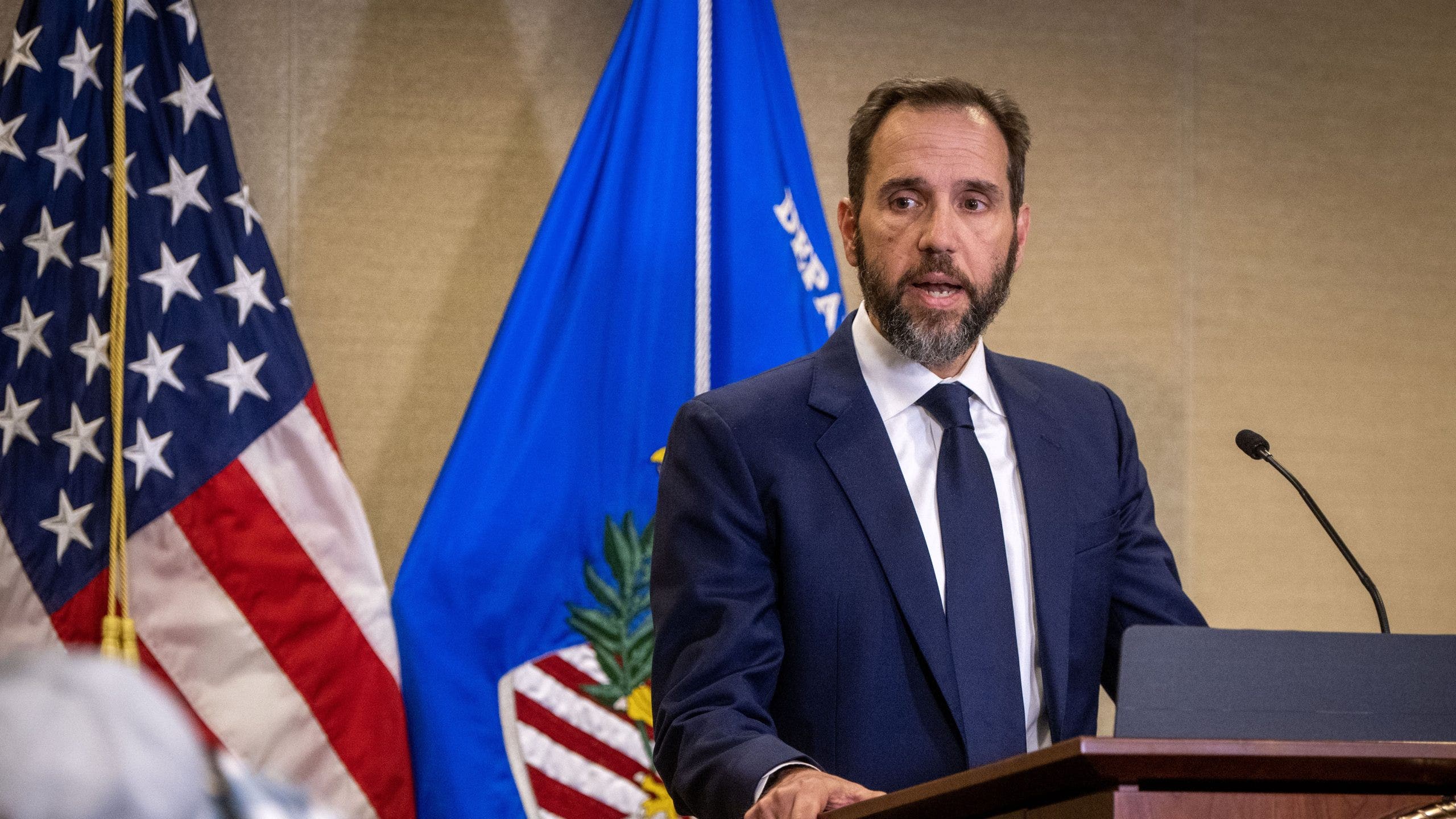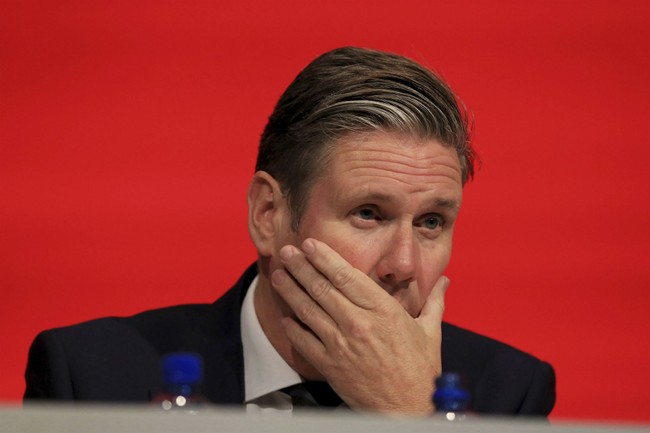Yesterday, Kamala Harris got forced to respond in real time to questions about her policy flip-flops in her first real news interview as the Democrat anointee for president. Harris has changed positions on nearly every issue on which she ran in 2019-20, mainly through anonymous campaign staffers leaking those reversals to friendly media rather than addressing the issues herself — and always without explanation.
Harris didn’t give any last night, either. Whenever Bret Baier asked her to explain her reversals, Harris had two responses, offered on almost every occasion: “That was five years ago,” and “I will follow the law.” The most notable of these exchanges came when Baier asked about a range of government services she wanted to supply for illegal aliens in 2019-20, for which Baier had prepared better than Harris:
Q: “In 2019, you supported allowing illegals to apply for drivers’ licenses, qualify for free tuition at universities, and get free healthcare. Do you still support those things?”
KAMALA: “That was five years ago” pic.twitter.com/TBoN7JfWm7
— America (@america) October 16, 2024
Harris clearly prepared for this challenge, too — to avoid explaining her flip-flops. “I will follow the law” became a mantra, and not a terribly convincing mantra at that for a few reasons. The most obvious reason, which Baier pointed out after one such response, was that presidents have a major role in shaping law, thanks to their veto power at the very least. Kamala’s promise to pass the buck to Congress notwithstanding, there is also the very big problem of overreaching executive authority in America’s bureaucratic state, in which presidents can flex plenty of muscle on interpretations and prioritization of enforcement.
Harris isn’t running as a libertarian, after all. She spent the first part of the interview defending Joe Biden’s Day One-ish executive orders on immigration, and her economic plan — such as it is — relies on regulatory interventions in housing, prices, and a raft of other economic activity. Harris’ agenda requires even more robust executive action than we have seen from Joe Biden … and it’s not as though he’s been a shy libertarian either.
This dodge is even more laughable from Harris when juxtaposed with Biden’s desperate efforts at the moment to buy voters through student-debt relief. Courts have repeatedly ruled that presidents do not have that authority and that Congress would have to appropriate funds specific to the purpose of loan forgiveness first. For the past three years, Biden has tried to get around the law rather than follow it, efforts that take place to this very moment, as Emma Camp reports for Reason:
The Court slapping his hand hasn’t stopped Biden. The Education Department’s 2022 proposal included major changes to the federal student loan program. Most notably, it created a much more generous income-driven repayment (IDR) plan, allowing borrowers to gain forgiveness more quickly and pay back significantly less of their loans (though this has also been halted in federal court). …
It’s not clear when these proposals will go into effect, if they ever do. In August, Education Secretary Miguel Cardona announced the final changes would be released sometime in the fall—but didn’t specify how close to the upcoming election.
With these policy changes coming so close to the end of Biden’s term, it’s difficult to know just how seriously to take them. Should Vice President Kamala Harris win in November, Biden’s student loan policy would presumably be carried over, albeit likely delayed.
Clearly, Biden isn’t as interested in “following the law” as he is in buying votes with money Congress never appropriated. Harris has carried this water for Biden the entire time, and by this point she’s also the beneficiary of this abuse of power.
And this isn’t the only area in which Biden and Harris have applied a much different model to exercising power than merely “following the law.” From fracking to Supreme Court packing, they have promised to force action regardless of law, as Jonathan Turley points out this morning:
Harris is not adopting that pedestrian model in other areas like abortion rights where she is pledging to use executive powers to resist pro-life laws. The Biden-Harris Administration has used such orders to negate both constitutional and statutory authority. That includes orders that were declared unconstitutional by the Supreme Court on issues like the national eviction moratorium.
Notably, Harris did flip her position on decriminalizing unlawful entries. Despite running on that pledge in her earlier unsuccessful run for the White House, Harris now says that she is against such decriminalization. As with her past opposition to fracking and gun rights, the change is likely to draw criticism that Harris is adopting a new persona for a close race.
The refusal to give her position on these issues is reminiscent of Joe Biden’s last campaign where he simply refused to say if he opposed packing the Supreme Court with an instant liberal majority. What is different is that Harris previously stated strong and public positions on these questions but is now refusing to confirm that she continues to support those policies, including some that rank near the top of issues for voters.
Finally, “I will follow the law” should be a minimal expectation for all office holders, no? That mantra tells us nothing about the candidate other than Richard Nixon’s famous exhortation, I am not a crook. Candidates are supposed to explain their policy positions and marry them to values; voters need to know what they will champion and what they will oppose while holding positions of public trust. “I will follow the law” is a clumsy attempt to short-circuit that process and keep all of those positions secret from voters, likely because Harris thinks her actual positions would alienate voters and push her out of office.
That kind of dishonesty should also disqualify her. That’s especially true when this mantra comes from an incumbent of an administration that has created one crisis after another by not following the law — especially when it comes to enforcing border security and releasing criminals into our communities for the past three-plus years.
Read the full article here





![Khloé Kardashian Blasts L.A. Mayor Karen Bass Over Wildfire Failures [WATCH] Khloé Kardashian Blasts L.A. Mayor Karen Bass Over Wildfire Failures [WATCH]](https://www.rvmnews.com/wp-content/uploads/2025/01/2025.01.11-09.38-rvmnews-6782e4e248f67.jpg)


![Mel Gibson Has A Lot of Questions About the CA Fires, Mocks Newsom with an Epic One-Liner [WATCH] Mel Gibson Has A Lot of Questions About the CA Fires, Mocks Newsom with an Epic One-Liner [WATCH]](https://www.rvmnews.com/wp-content/uploads/2024/10/2024.10.25-12.45-rvmnews-671b92d6c7835.jpg)
